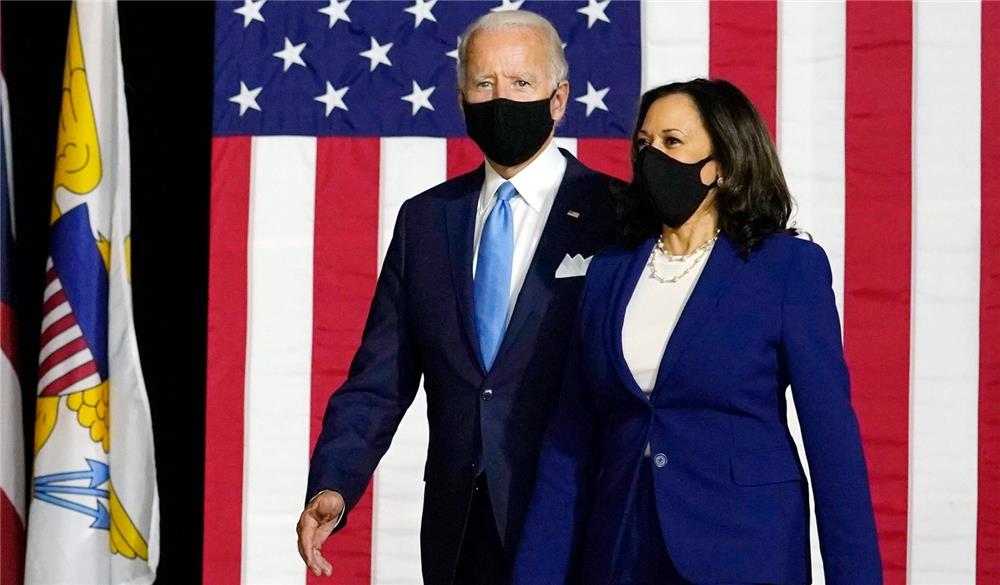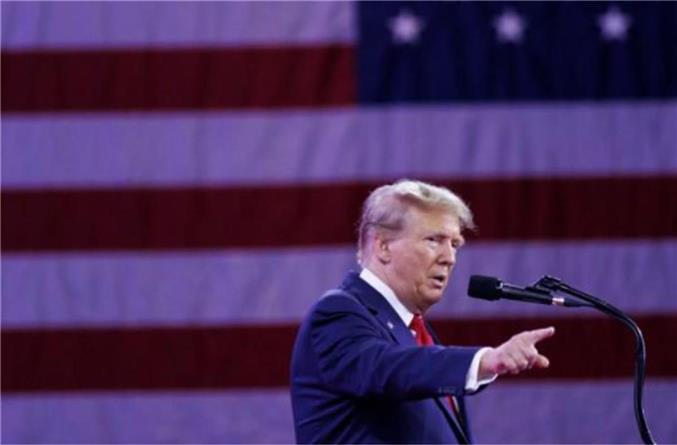Trump’s second term will look nothing like his first

Now that he has the Republican Party to himself, and purged any members who dared criticize him, Trump enters the Oval Office the second time with a more seasoned eye, and more pent-up resentments about how he thinks the system failed him.
In many ways, Trump is better positioned this time, as he is set to win the popular vote in addition to winning the Electoral College. That gives him the political opening he lacked after 2016 to claim a mandate for his views nationally — a frustration point for him as he began his first term.
“America has given us an unprecedented and powerful mandate,” Trump told a jubilant crowd in West Palm Beach, Florida, on Tuesday morning. “As your President, I will govern by a simple motto: Promises made, promises kept.”
That makes the next four years impossible for any outside observers to predict based only on the last term. Trump’s rival, Vice President Kamala Harris, tried to warn of that peril to voters, but to his supporters, the promises Trump made of remaking the country he believes is broken were the point — even if it means abandoning norms and rules he previously said he adhered to.
The figures who once thought they could be stabilizing forces are long gone. They’ve all abandoned Trump. The line of chiefs of staff, the defense secretaries, the national security advisers, the director of national intelligence, even the attorney general — all are long gone from the inner circle, having left behind angry assessments of the president’s character or abilities.
They’ve been replaced by a cohort of advisers who appear uninterested in moderating him. Instead of acting as bulwarks, those working for Trump this time around share his views and are intent on fulfilling the far-right pledges Trump made on the campaign trail, with little concern about norms, tradition or breaking the law — tenets previous advisers sought to uphold.
Trump’s orbit of influence has shifted substantially since he left Washington in January 2021. For example, he will enter office without his daughter Ivanka Trump and her husband, Jared Kushner, at his side as his top advisers. Once ubiquitous as surrogates for their father and later as senior aides in the White House, the Kushners have stepped away from the day-to-day of the presidency and politics. Ivanka Trump has made clear she has no plans to reenter the West Wing, and while Kushner has been in contact with Trump as he transitions, people familiar with his thinking said he’s unlikely to walk away from his private equity firm, Thayer Ventures.
Instead, Trump has leaned on Donald Trump Jr., Elon Musk and Susie Wiles through his third White House run.
The former president also seems eager to reward his most ardent supporters — like Robert F. Kennedy, Jr. — even if their views live completely outside the mainstream. Even after RFK Jr.’s belief in COVID vaccine conspiracy theories emerged during the campaign and his views veered into antisemitism, he recently said Trump had told him he’d “fight like hell” for him if he were to run Health and Human Services.
Stung by his experience with agency lawyers and Justice Department attorneys who fought back on his attempts to rewrite policy, Trump will look this time to staff the government with lawyers who are more willing to find legal rationales for his most radical policy ideas, rather than raise concerns when they don’t comply with the law.
Even now, Trump is opting to skirt the usual transition practices, forgoing ethics agreements that would have allowed his campaign to begin working with the Biden administration on the handoff. Typically, that process begins as much as six months before Election Day — and the delay stems from Trump’s deep mistrust of federal agency officials, particularly those not appointed by him. That means his team won’t have to report their donors to his transition office, but are also unable to receive national security briefings or the millions of dollars in funds to aid the transition.
Due to Trump’s protracted fight over the wording in the ethics agreement, he missed the November deadline that would have allowed him to begin receiving security clearances for his aides and top advisers. The White House has said it does not plan to grant security clearances until Trump signs the agreement, and some transition advisers for Trump have floated conducting their own background checks, without the FBI.
Congress has also shifted further into Trump's corner, where moderate Republicans are far fewer and have all sworn their loyalty to him. Efforts during the past four years to put brakes on presidential power have stalled in a divided Congress, and those anti-Trump Republicans that did exist in Congress are now retired or lost their bids for reelection. The Senate has also lost its last Republican holdout against Trump with Sen. Mitt Romney of Utah’s loss to former Salt Lake City Mayor Jenny Wilson.
The federal judiciary has also undergone a significant transformation since Trump left office in 2021. The Supreme Court, which over the course of his first term began leaning further to the right with Trump appointees Neil Gorsuch, Brett Kavanaugh and Amy Coney Barrett, is a more conservative court than it was when Trump first took office. That means any legal challenges to Trump’s policies this term may not get the same scrutiny they did in the past. And his return to office comes after the Supreme Court ruled that presidents have immunity from lawsuits alleging abuse of power in office. Trump's win all but ensures he will dodge most, if not all, of the legal cases pending against him from his first term.
Perhaps most important of all, even those close to Trump describe a change in his approach and demeanor in the intervening four years since he left the White House.
Trump, now 76, has aged four years, but has given limited detail about his health. At times he appears fatigued or less steady on his feet. He’s now a convicted felon, and faces dozens of other indictments in separate cases that now seem unlikely to proceed.
And, in public and in private, he is more focused on issues of revenge and retribution than he was at least in public on the campaign trail four years earlier.
He’s angrier and shows less patience for the details of governing than he did during the beginning of his first term.
Trump’s first term was marked by constant staff churn, chaotic decisions based on whims and constant frustrations on the part of the president that the federal government didn’t bend to his will.
For example, he grew furious at times with the Justice Department for failing, in his view, to properly investigate and bring charges against his political opponents and their allies. And while he and his lawyers tried — and he was impeached for the second time — to overturn the results of the 2020 election, Trump’s efforts failed.
In policy as well, much of what Trump attempted to do was undone, often by aides acting to blunt the effect of the president’s orders. In many other cases, incompetence at a White House run by staff who were largely novices to Washington politics left important decisions unmade. Trump was blindsided by a number of events — like the mass shooting in Orlando, Florida, and the collapse of a dam in Michigan — because he had not been properly briefed. His policies failed, in many cases, because his aides were incompetent. His attempt to repeal and replace the Affordable Care Act died in the Senate due to faulty calculations by his staff. And Trump’s decision to unilaterally withdraw U.S. troops from Syria, which led to what amounted to an ISIS victory and a refugee crisis along the Syrian border, was made with minimal input from his aides, who later said they tried to temper his instincts and decisions.
In the second term, many of those safeguards against his most extreme impulses will be gone. Instead, the people Trump has around him have become more adept at pulling the levers of government to exert their power.
Trump has a lengthy list of executive actions, policy proposals and regulatory rollbacks already drafted, waiting to be signed by him on day one, two sources briefed on Trump’s plans have said.
Trump’s team and advisers have made clear they are looking for loyalty above all else as they try to staff the new administration — another change from Trump’s first term, when he was burned by high-level White House aides who turned on him. Trump has said the people he appointed to his Cabinet are the biggest regret of his first term.
That means the staffing decisions this time around will be intentionally built around individuals who will not work to undermine his agenda from within, an allegation Trump has leveled at some of the people he fired from the White House.
“They said we didn’t know what we were doing, that we were inexperienced,” Trump has told people close to him about the first administration. “Well they’re not going to do that to me again.”
His former attorney general, Bill Barr, warned during an interview on CNN last summer that loyalty “is a one-way street for him,” and that Trump “just leaves all this carnage in his wake.” But many first-time officials have expressed interest in working for Trump despite the warning.
His transition co-chair, Howard Lutnick, CEO of Cantor Fitzgerald, has amassed a lengthy list of potential political employees, ready and willing to serve the newly elected president. Trump infamously axed his transition team after his win in 2016, after his aides had spent months assembling a list of potential appointees.
Trump has also made clear in recent weeks, as he’s mulled potential high-level appointments, that he is fine with bypassing the Senate confirmation process for Cabinet secretaries. Trump has repeatedly asked the individuals he’s pitched for potential Cabinet posts if they’d be open to serving as acting secretaries. He believes it gives him more flexibility if he wants to make a change down the line.
The work of finding those people began well before Election Day, as various groups aligned with Trump began making lists of loyalists to present to Trump’s transition team. Trump had begun weeding out government employees deemed disloyal in the final year of his first term, an effort spearheaded by his onetime body man John McEntee; now, those efforts will be in place from day one.
Trump himself has promised that he will take lessons from his first time in the White House and apply them this time, in part to avoid what he calls mistakes that hampered his ability to govern the way he wanted to for his first four years in office.
“I didn’t know anybody, I was not a Washington person. I was rarely there,” Trump said last week in an interview on Fox News, a network he owns. “I know everybody now. I know the good, the strong, the weak, the stupid. I know the – I know everybody. And we’re going to make this country great again, and we have to save our country.”
 Famous Persons
Famous Persons English
English
 Jerry
Jerry Facebook
Facebook Twitter
Twitter Pinterest
Pinterest Linkin
Linkin Email
Email Copy Link
Copy Link










